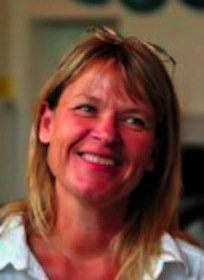 Here is an excellent blog from the Mad in America website. Carina Håkansson is a psychotherapist and manager at Family Care Foundation in Gothenburg, Sweden, which was founded in 1987.
Here is an excellent blog from the Mad in America website. Carina Håkansson is a psychotherapist and manager at Family Care Foundation in Gothenburg, Sweden, which was founded in 1987.
It’s a funny old world because I spent three years in Gothenburg from 1981 in the early stages of my neuroscience career, conducting postdoctoral research with Arvid Carlsson, the father of dopamine research. Dopamine is the brain neurotransmitter classically associated with schizophrenia.
As some of you know, I left my neuroscience career behind me in 2000 because I did not believe that drug treatments were helping people recover from addiction and mental health problems. Anyway, here is Carina:
‘Through the ISPS listserve, I read a blog this morning written by Thomas Insel, director of the NIMH. The way he described people I daily meet in work and in my own life created a rising pulse, so I decided to find out some more about his thoughts and practice. I am not saying that what I read on his blog is unknown to me, but still it made me wonder how on earth is it possible to invest so much money – and resources – in research which is so distant from practice, and so far away from humanistic and holistic ideas and theories.
On the NIMH web page you can find a variety of psychiatric diagnoses, and there is no question there whether they – so to speak – exist or not. Rather the opposite; again and again words like “schizophrenia,” for example, are used as if a phenomena called schizophrenia exists. And so it is described how researchers (maybe) now have found that it is not possible to make use of experiments from mice in relation to human beings.
What is not described is the enormous amount of money it has cost to come to this “finding.” It is so upsetting; so hard to find words for. Worse than this is that this kind of research is still the dominant one, and still there are experiments going on to find “the missing link,” to find “the gene,” to find in the brain what might cause that which is called schizophrenia.
At the same time an innumerable amount of methods and manuals consisting of different letter combinations are created, and in many places – in Europe and the US, in particular – nearly impossible to get the word out about alternatives to this way of thinking and acting towards human beings.
It is as if life wisdom and knowledge is put aside; as if knowledge about what is important for all of us is not relevant. As if social and political conditions don’t make an impact, both on individuals and society itself.
I can´t tell how many times over the years my colleagues and I have met people who have been defined as patients and prescribed drugs and told they have to “accept” their illness. And also how they are told a lot of – as I would say – lies. For example; that it is not possible to get off drugs and it is not possible to live an ordinary life without contact with psychiatry.
So let me end this very short post, written just before I am about to talk with a person who used to be defined in terms of “schizophrenia,” and told she has to stay on drugs for the rest of her life. As you may guess it was a wrong prediction and she is now off drugs and getting back to an ordinary life – whatever that means.
For many years I was against research since the only kind of research I heard about was the one described in Thomas Insel’s post. Inspired by people I got to know by being part of an extended broad network I came to become a researcher myself and I have come to see the very need for alternatives to the kinds of research described above in this post.
I think we need to find ways together to describe human life and to describe what is important to human beings. Being part of MadinAmerica has made me even more convinced, so my deep thank you to all who in different ways share important knowledge and experience, and by doing so get the word out.’
I share the same sentiments, Carina. Thank you for this thoughtful blog.


